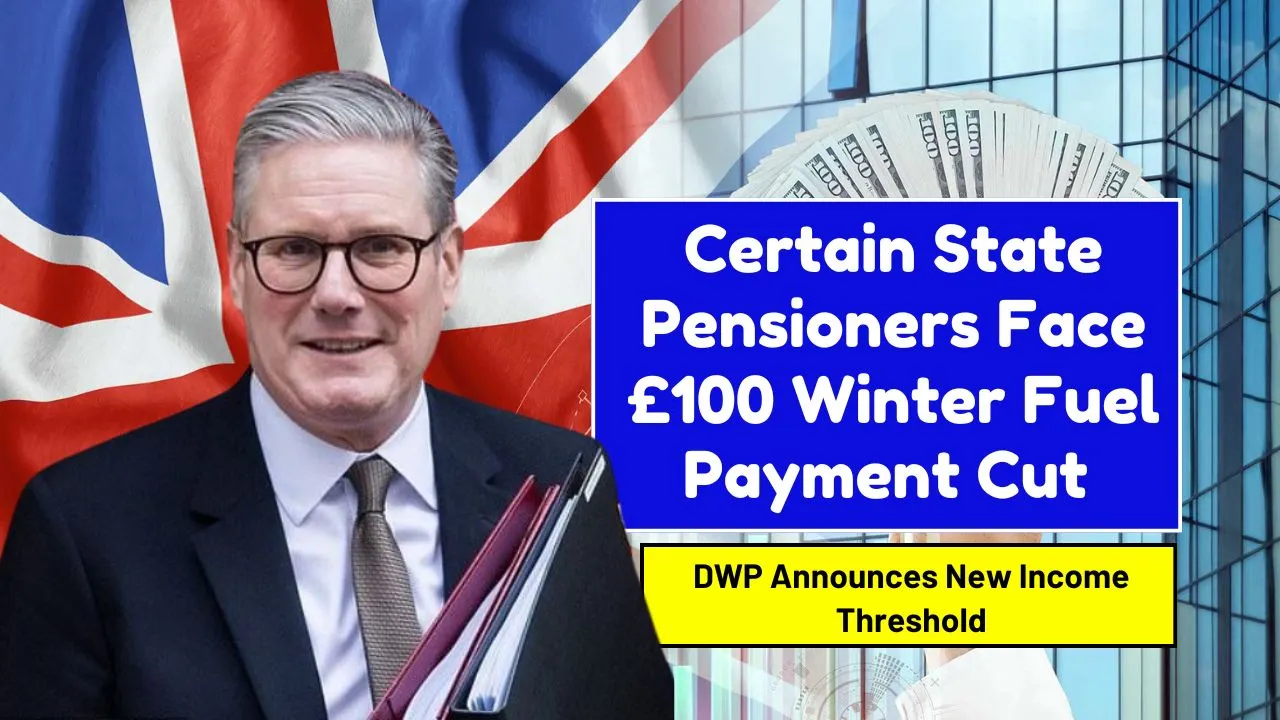Winter Fuel Payment Cut: The Winter Fuel Payment Cut has sparked concern for many state pensioners as new income rules are set to reshape benefits this winter. With households already wrestling with rising living costs, any reduction in heating support adds further strain to vulnerable seniors.
This article delves into what the Winter Fuel Payment Cut means, who it affects, and why it matters. We break down the policy, explore reactions from experts and politicians, and offer clear insights and guidance—all designed to help pensioners and their families navigate this shift with clarity and confidence.
Winter Fuel Payment Cut – What You Need to Know
The Winter Fuel Payment Cut hinges on a new household income threshold introduced by the Department for Work and Pensions (DWP). Pensioner couples earning a combined income over £35,000 will see their payments slashed, with one partner receiving as little as £100. This revised rule aims to better direct funds to those in greatest need, but raises questions around fairness and unintended economic consequences.
Overview Table
| Household Situation | Winter Fuel Payment |
| Single pensioner (over 80) | £300 |
| Single pensioner (under 80) | £200 |
| Couple (both pensioners, combined income < £35,000) | £300 |
| Couple (one pensioner earns > £35,000) | £100 |
| Couple (both pensioners, combined income > £35,000) | £100 |
What is the Winter Fuel Payment?
The Winter Fuel Payment is an annual subsidy from the UK government to help older adults manage winter heating costs. Originally intended for those aged 65+, it typically ranges from £200 to £300, depending on factors like age, living arrangements, and whether one partner is over 80.
New Policy Details
From autumn 2025, the DWP will evaluate household income to determine eligibility. Here’s how it breaks down:
- Non-means-tested payment: The payment isn’t reduced for singles or couples earning under £35,000.
- Means-tested element: Couples with combined income over £35,000 receive only £100—directed to the lower-earning member.
- Aim: To safeguard resources for pensioners facing fuel poverty, while reducing unnecessary payouts to higher-income households.
Although the Winter Fuel Payment Cut targets a just distribution, critics argue its sharp income cutoff risks harming couples on the brink and creating bureaucratic burdens.
Why the Winter Fuel Payment Cut?
The headline £100 reduction for some pensioners reflects a shift toward targeted support. The £35,000 threshold is anchored around national average earnings, directing help to those who need it most. However, this has prompted debate over several issues:
- Cliff-edge effect: Families slightly above the cutoff may feel penalized.
- Disincentives to earn: Pensioners might forgo extra earnings to retain full benefits.
- Higher admin costs: Assessing incomes adds complexity and may counteract projected savings.
While the treasury forecasts £450 million in savings, think tanks like the Resolution Foundation warn this could be eroded by increased pension credit uptake and extra processing expenses.
Impact on Pensioners
The Winter Fuel Payment Cut has far-reaching implications for households approaching or exceeding the threshold. Some pensioners may forfeit up to £200 in heating support—enough to affect monthly budgets.
Take, for example, Mike from Wales. With an annual income between £35,000 and £40,000, he saw his benefit slashed. Though he managed last year, he worries about future winters and whether the funds might be better channeled into other public services. His story highlights a common concern: being just above the line yet still feeling financial pressure.
Political Reactions
The policy shift has provoked responses across the political landscape:
- Kemi Badenoch criticized the move, labelling it a retreat that fails struggling pensioners and shifts blame onto Labour’s leadership.
- Ed Davey welcomed the reversal, stating it was long overdue and urged for more measures to protect vulnerable seniors.
Both sides agree the Winter Fuel Payment Cut is more than a financial tweak—it’s a symbolic measure with real emotional weight for citizens depending on this support.
Economic Implications
Finance experts have flagged potential ripple effects:
- Pensioners near the threshold could limit extra income to avoid losing benefits.
- Savings might be negated by increased claims for pension credit and added administration.
- Monthly budgets for affected pensioners will tighten, possibly pushing some into fuel poverty.
Left unchecked, these shifts could heighten inequality among older adults and diminish the policy’s intended cost-efficiency.
Summary: Who Gets What?
- £300 payment: Single pensioners (over 80), those under 80, and couples earning under £35,000.
- £100 payment: Couples where one spouse earns more than £35,000.
- Objective: Employ the Winter Fuel Payment Cut to prioritize heating aid for lower-income pensioners.
Frequently Asked Questions
1. Who is eligible for the Winter Fuel Payment in 2025?
Pensioners aged 65 + across the UK remain eligible, though the amount is now based on household income and living situation.
2. What defines the income threshold?
Couples with combined incomes over £35,000 are subject to the Winter Fuel Payment Cut, reducing their payment to £100.
3. How do I know if I qualify under the new rules?
DWP will assess tax and pension records this summer. If you’re a couple earning above £35,000, expect to receive £100 instead of the full amount.
4. When are payments issued?
Payments are typically disbursed between November and December each year.
5. Can I appeal a decision or check my status?
Yes, you can contact the DWP to ask for a review or seek help via pension credit services to check if other support applies.
Final Thoughts
The Winter Fuel Payment Cut reflects a pivot to means-tested winter fuel support. Though it tightens the purse automatically, it strives to help those most exposed to fuel poverty. Even so, its steep threshold, bureaucratic burden, and tough optics could end up cutting too sharply—leaving some senior households struggling unnecessarily.
If you’re affected, reach out to your local advice service, explore pension credit options, and monitor your DWP messaging. And if this change concerns you, now’s the time to speak out—reach your MP and community groups to advocate for a fairer threshold.
Call to Action:
Have you or a loved one experienced changes from the Winter Fuel Payment Cut? Share your story below—it helps others prepare. Don’t forget to subscribe for updates on pensioner support and use our tools to see what financial help you might qualify for.
Stay warm, stay informed.




